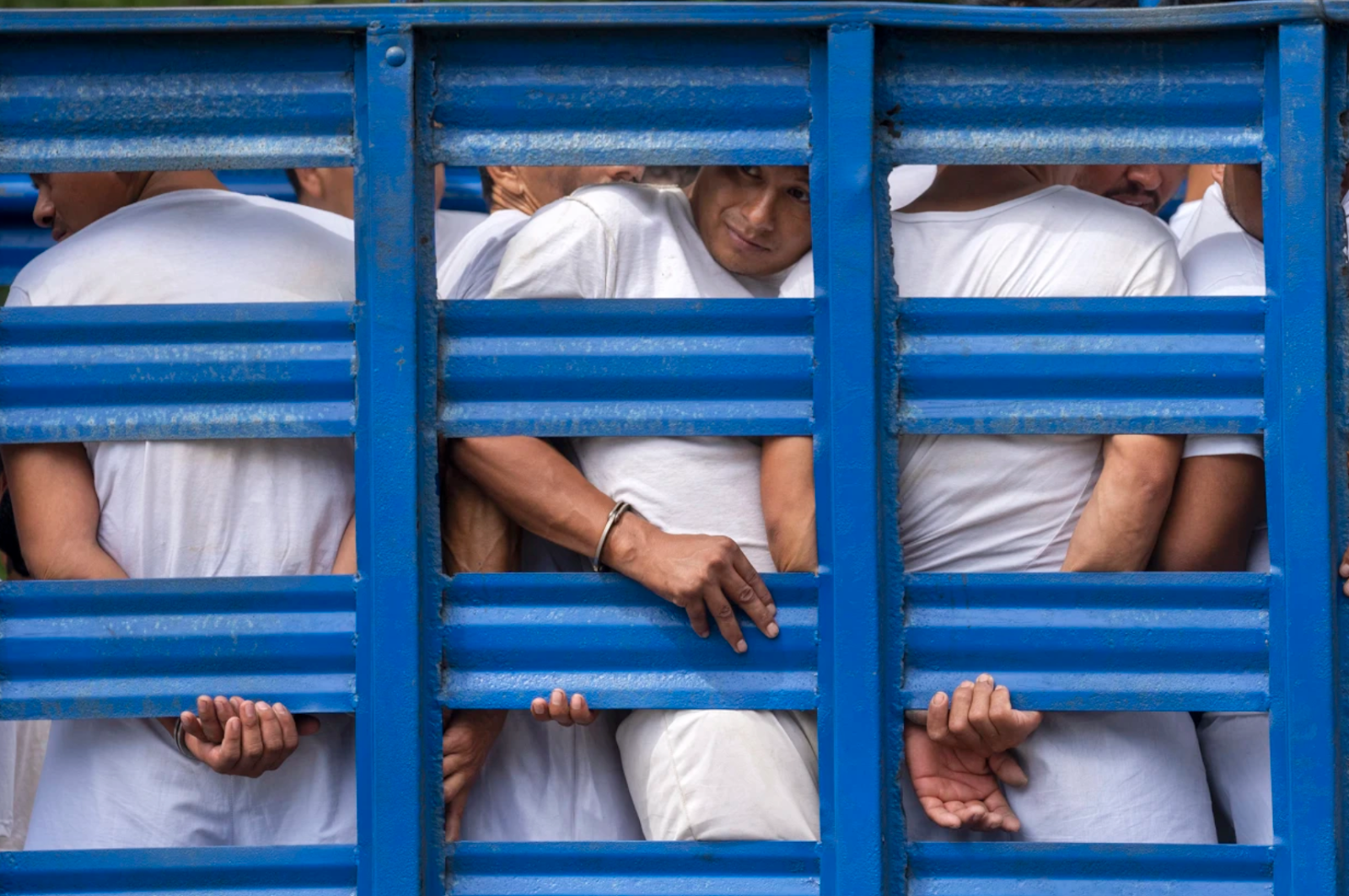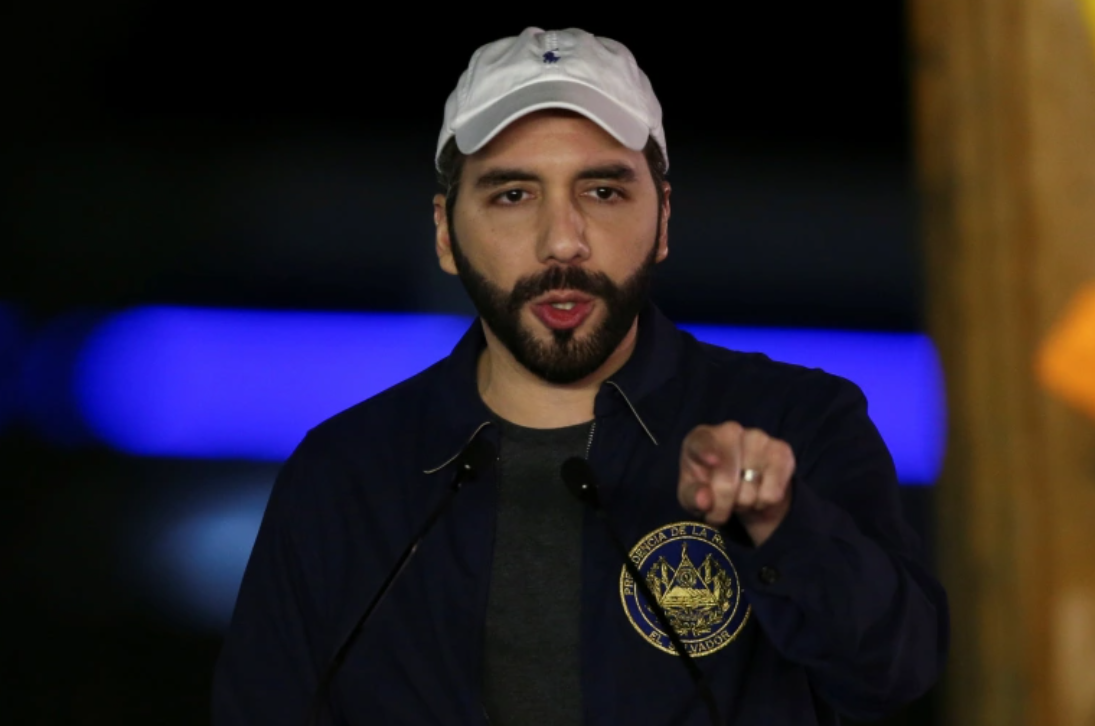El Salvadoran Crackdown on Gang Violence Leads to Prison Overcrowding
Men detained under the "state of exception" are transported to a detention center in a cargo truck in Soyapango, El Salvador, on Oct. 7. Source: Moises Castillo/AP file
El Salvador’s crackdown on gang violence has resulted in over 55,000 arrests since March. As the number of detentions surges, the prison population has more than doubled.
This has put pressure on the already overwhelmed criminal justice system, and the ratio of judges to defendants has increased dramatically. Some hearings consist of 300 defendants at one time, and the country’s public defenders are overworked.
Concerns about the conditions in prison have also risen. Reports describe packed cells with little access to food, water, or sanitation, and many deaths due to injuries from violent arrests, untreated chronic illnesses, and a lack of sanitation. Some defendants have disappeared in the penitentiary system, and families have not been notified when someone dies or is transported to other prisons.
The government’s response is a new mega prison.
Many of the jailed were arrested based on flimsy evidence, such as tattoos, past criminal records, or anonymous tips. Multiple police officers have reported being given daily arrest quotas. People have been detained at checkpoints, by soldiers going door to door, or even straight off the street.
President Nayib Bukele has spearheaded the crackdown. At the beginning of his term, there was a drop in homicides, which was partly due to alleged negotiations between government officials and imprisoned gang leaders. However, in March, street gangs killed 62 people in one day. In response, the government suspended constitutional rights and announced a state of exception.
Bukele's right-leaning populist party controls all of the main institutions in the country. The party has a majority in the Legislative Assembly, ousted Supreme Court judges of the Constitutional Chamber in May 2021, and has been closely allied with Salvadoran security forces. Bukele’s government also passed a new law dismissing judges that are 60 years old or have been working for 30 years, forcing out the most experienced magistrates.
All of these emptied positions were then replaced with loyalists. Sidney Blanco Reyes, one of the judges forced to quit, lamented that “it’s as though the fate of those locked up depends on what the president says.”
Salvadoran President Nayib Bukele's government arrested more than 14,000 people after it declared a 'state of exception' in response to a surge in gang violence. Source: Jose Cabezas/Reuters
This state of exception has suspended the right of association, the right to be informed of the reason for an arrest, and access to legal counsel. The government can legally monitor calls and mail. Moreover, the period of time someone can be held without charges is extended.
The current system has few checks in place, so arrestees are automatically sent to prison for six months, with little explanation and scarce opportunity to be released.
Bukele conceded there have been ‘errors’ in a few of the arrests, but is determined to continue the state of exception that has been extended every month and is unlikely to end soon. There are reportedly still 30,000 gang members still at large in El Salvador, and the repression is to continue until the country is officially deemed safe.
Despite Bukele’s human rights abuses and derisive rhetoric towards the imprisoned population, he has retained immense popularity. The pollster CID Gallup explains that Bukele’s approval rating is 86 percent. Further, 95 percent of the population claim that the government’s performance on security is positive, 84 percent believe that security had improved during the previous four months, and 85 percent support harsher measures against gang members.
Gangs have a grim reputation in El Salvador. The two most powerful, MS-13 and Barrio 18, were established in Los Angeles in the 1970s by immigrants before they were brought back to El Salvador. These gangs are known for violence against civilians, executions, forced recruitment, and extortion. For many Salvadorans, the fear of a return to criminal violence surpasses the concerns of government oppression.


